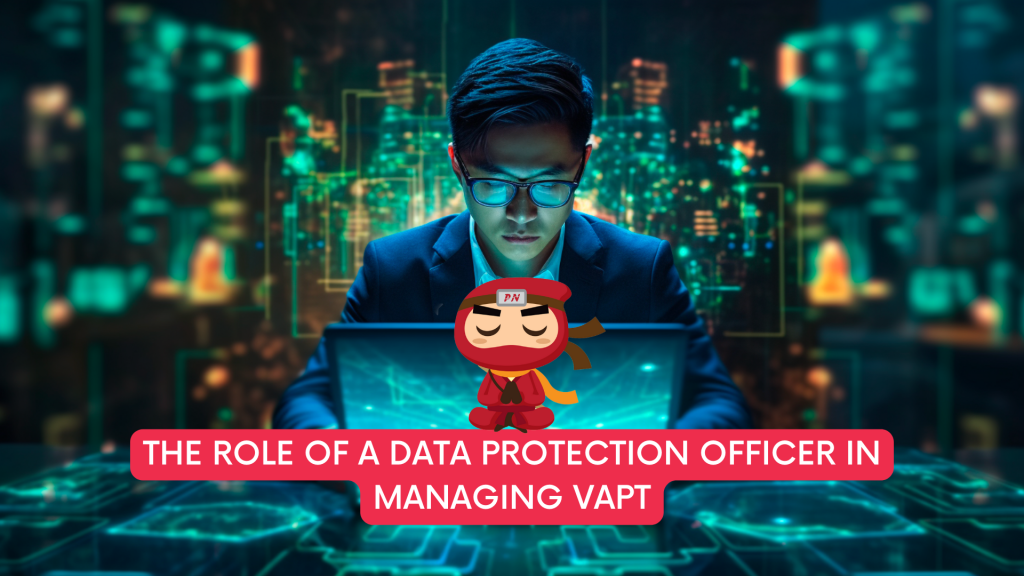
As data security threats continue to evolve, the roles and responsibilities of a Data Protection Officer (DPO) in managing such threats have also grown. Among these critical roles is the management of Vulnerability Assessment and Penetration Testing (VAPT). Let’s delve deeper into the role of a DPO in managing VAPT and strengthening an organization’s data security framework.
As outlined by the Personal Data Protection Commission (PDPC) and reiterated in several resources, a DPO is responsible for ensuring compliance with local and international data protection regulations. In addition to fostering a data protection culture and managing related queries and complaints, a DPO is also tasked with alerting management to any risks that might arise with personal data. In essence, the DPO plays a pivotal role in safeguarding an organization’s data and its overall security framework.
Vulnerability Assessment and Penetration Testing (VAPT) is a comprehensive approach to identifying vulnerabilities in an organization’s digital infrastructure and evaluating its ability to withstand potential cyberattacks. VAPT involves two key components:
The DPO plays a key role in managing VAPT, which aligns with their responsibility of alerting management to any risks associated with personal data. Here’s how a DPO can contribute to managing VAPT:
In summary, while the DPO may not directly conduct VAPT, they play a pivotal role in its management. By effectively managing VAPT, a DPO can strengthen an organization’s data security, mitigate potential risks, and ensure compliance with data protection regulations.
Your appointed DPO can work with you on your PDPA compliance, ensuring that there will be policies in place to make sure that the handling of personal data is PDPA compliant. This includes promptly responding to the PDPC with their queries to expedite the investigations and prevent a harsher penalty from the Commission.
A Data Protection Officer (DPO) oversees data protection responsibilities and ensures that organisations comply with the Personal Data Protection Act (PDPA). Furthermore, every Organization’s DPO should be able to curb any instances of PDPA noncompliance as it is the officer responsible for maintaining the positive posture of an organisation’s cybersecurity.
DPOs complement organisations’ efforts to ensure that the organisation’s methods of collecting personal data comply with the PDPA. It also ensures that policies are set in place to make sure that there will be no instances of data breaches in the future.
Don’t wait any longer to ensure your organisation is PDPA compliant. Take our free 3-minute PDPA Compliance Self-audit checklist now, the same “secret weapon” used by our clients to keep them on track. Upon completion, we will send you the results so you can take the necessary action to protect your customers’ data. Complete the free assessment checklist today and take the first step towards protecting your customers’ personal data.
Role of Enhanced Access Controls in Safeguarding Personal Data in Telecommunications that every Organisation in…
Effective Incident Response Procedures in Strengthening Data Security that every Organisation in Singapore should know…
Crucial Role of Regular Vulnerability Scanning that every Organisation in Singapore should know. Strengthening Your…
Enhancing Data Security with Multi-Factor Authentication that every Organisation in Singapore should know. Enhancing Data…
Strong Password Policy as a first line of defense against data breaches for Organisations in…
Importance of Efficient Access Controls that every Organisation in Singapore should take note of. Enhancing…
This website uses cookies.